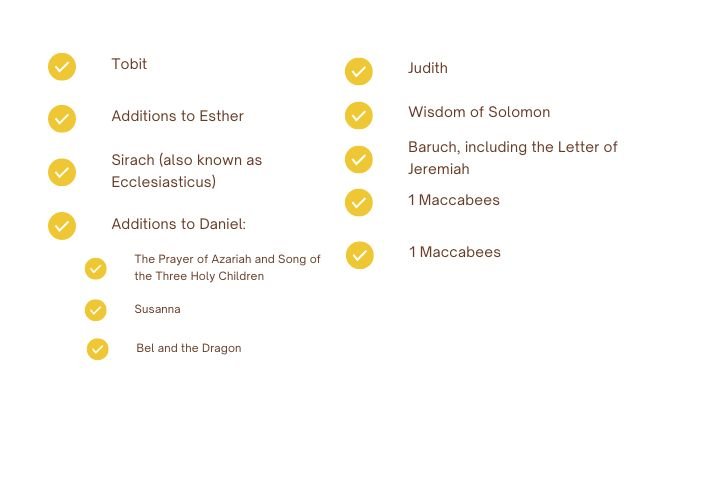The Apocrypha is a term used to describe a group of writings that were occasionally bound with the testaments of the Christian Bible, specifically in the intertestamental period. The content and number of books considered to be part of the Apocrypha vary among different Christian denominations. Generally, they are ancient texts that have been considered scriptural by some branches of Christianity, but not universally accepted as canonical.
Determining the exact number of books in the Apocrypha can be challenging because the recognition of these texts differs among religious traditions. The Roman Catholic Church, for instance, includes certain books in the deuterocanonical section of the Old Testament that Protestants often label as apocryphal. The Orthodox Church also recognizes books as canonical that are not included in the Protestant Old Testament. In a typical Protestant edition, the Apocrypha contains between 12 to 15 books, which are historical, didactic, and prophetic in nature, yet the total can rise to more than 50 when considering the broader collection of non-canonical scriptures, including the extended Complete 54-Book Apocrypha.
The debate over which books belong within the Biblical canon has deep historical roots, with discussions evident as early as the Councils of Rome and Trent for the Catholic tradition. The Eastern Orthodox Church’s position, articulated through councils such as the Synod of Jerusalem, includes a set of texts known as the Anagignoskomena. This nuanced landscape of religious texts highlights the rich and complex history of Biblical scholarship and the variety of practices across Christianity in defining sacred scripture.
Canonical Texts of the Apocrypha
The Apocrypha is a collection of ancient Jewish writings that are included in the Old Testament by some Christian denominations but not recognized by others. The contents vary between traditions, with the Catholic Church and the Eastern Orthodox Church accepting different books as canonical.
Deuterocanonical Books

The term Deuterocanonical is used by the Catholic Church to describe the books that are considered canonical Old Testament books, but which are not included in the Hebrew Bible. These texts were affirmed at the Council of Rome in AD 382 and the Council of Trent in 1545-63. Here is a list of the Deuterocanonical books:
These texts often appear interspersed with other Old Testament books in Catholic Bibles.
Anagignoskomena
The term Anagignoskomena refers to the texts that the Eastern Orthodox Church regards as canonical Old Testament books but that are not part of the Hebrew Bible. As confirmed by the Synod of Jerusalem, these books are included in the Septuagint, the Greek manuscript of the Old Testament, and they have been canonically recognized within Orthodoxy. The Anagignoskomena includes the following texts, which overlap with the Deuterocanonical books:
- 1 Esdras
- Tobit
- Judith
- The Additions to the Book of Esther
- The Wisdom of Solomon
- Sirach
- Baruch and the Letter of Jeremiah
- Additions to Daniel
- 1 Maccabees
- 2 Maccabees
- 3 Maccabees
- 4 Maccabees (in an appendix to the Greek Bible)
- Psalm 151 (in the Septuagint as an addition to the Psalter)
It should be noted that both the Catholic and Eastern Orthodox Churches include books in their Old Testament that are not in each other’s canons, reflecting differing traditions of what is considered authoritative scripture.
Number of Apocryphal Books

The Apocrypha refers to texts not included in the canonical Bible of various Christian traditions. The number of these books varies between the Catholic and Orthodox Churches.
Books in the Catholic Tradition
The Catholic Church includes several apocryphal texts within the Bible. These books are integrated primarily into the Old Testament and number seven:
- Tobit
- Judith
- Additions to Esther
- Wisdom of Solomon
- Sirach (also known as Ecclesiasticus)
- Baruch
- Baruch and the Letter of Jeremiah
- Additions to Daniel (including the Prayer of Azariah, the Song of the Three Holy Children, Susanna, and Bel and the Dragon)
Certain Catholic Bibles may also encompass the 1 and 2 Maccabees, as these texts are acknowledged in the Catholic canon.
Books in the Orthodox Tradition
The Orthodox Church recognizes a broader collection of apocryphal books. The exact number can vary by tradition, but generally includes additional texts compared to the Catholic Apocrypha:
- 1 Esdras (sometimes called 3 Esdras)
- 2 Esdras (sometimes called 4 Esdras)
- Prayer of Manasseh
- Psalm 151
The Orthodox Apocrypha also encompasses the Catholic apocryphal books, totaling over ten in number. Notably, the Greek Septuagint—a Greek translation of Hebrew texts—has been influential in the Orthodox designation of these books.


